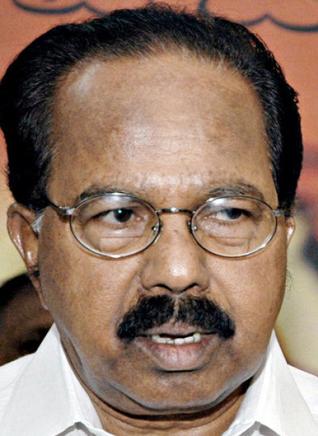
New Delhi, September 14: Coal blocks that are deallocated by the government after review of their status should be given to the upcoming power projects to meet the capacity addition target of 85,000 MW in the 12th Five Year Plan, Power Minister Veerappa Moily said on Friday.
“Yes, definitely. We are going to seek that (the de-allocated coal blocks),” Mr Moily told reporters here after releasing a report “Green Energy Corridors“.
He added, “We are always placing our priority because you know coal (which) is provided...that will contribute more to the power sector. That kind of capacity building (85,000 MW in 12th Plan) is in the offing,” he said.
On Thursday, the Coal Ministry had decided to deallocate 4 coal blocks — Bramhadih Block in Jharkhand, allocated to Castron Mining Ltd in 1996; Chinora and Warora (southern part) blocks in Maharashtra, given to Fieldmining and Ispat Ltd in 2003; Lalgarh (North) block in Jharkhand allotted to DOMCO Smokeless Fuels Pvt Ltd in 2005.
The decision to de-allocate the blocks was taken after recommendation by an Inter-Ministerial Group (IMG), headed by Additional Secretary (Coal) Zohra Chatterji.
The government decision came shortly after IMG’s recommendation to do so following the group’s evaluation of the performance of each of the cases considering factors like approval of mining plan, grant of environment clearance, status of forest clearance and land acquisition.
The IMG also recommended deduction of Bank Guarantee (BG) in case of Marki Mangli-II, III and IV Blocks in Maharashtra allocated to Shri Virangana Steels Ltd.
IMG had last week reviewed the status of 29 coal blocks allocated to private firms and it is likely to submit the final report on it next week.
“We can definitely produce 25,000 MW by the end of this financial year provided that other things are tied up because the capacity has been created. There are also capacities which have not been utilised... It is available around you, only thing is that a decision has to be taken,” Mr Moily said.
The Power Minister also said that he is meeting Finance Minister P Chidambaram later in the day “to ensure there is no blockade to capacity utilisation and also on creating new capacity for the power sector”.
The meeting will be attended by representatives of ministries of coal and environment and forests as well, he added.




Comments
Add new comment